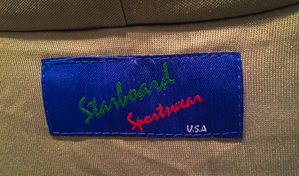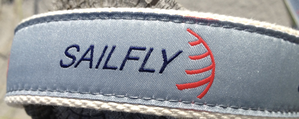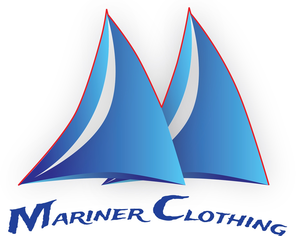The myriad of fabrics available in today's garments makes navigating to the right choice of your given application seem pretty confusing. Having had 15 years of experience picking fabrics for performance clothing, I have come to embrace the qualities of modern fabrics, while still appreciating the properties of age old fibers that have been reworked into today's modern designs.
When polyester technical fabrics first came out, they were touted as being far superior to cotton. While much of this is true, there were downsides to these man-made fibers. The most notable issue with the first "tech" shirts was the "stink factor" after a good sweat. The second issue with many of these fabrics was the "snag" factor. These shirts would look great out of the bag, but soon after, they would snag on everything but teflon!
So, with coatings like silver nano-particles and other enhancements, the fabric industry has attempted to address the short-comings of modern materials. There are various studies that have examined the safety of long term exposure to these fabric additives, but so far there has been no dire warning.
Technology has also advanced the viability of natural fibers from the Bamboo plant and Hemp plant in clothing that has grown to be seen as a "green" alternative in the performance clothing market.
The weight, composition, and weave of the fabric ultimately determine how effective the garment is at wicking sweat, fighting body odor, and protecting skin from the sun. While Bamboo and Hemp have similar performance characteristics, Bamboo comes out on top for it's silky smooth feel and better wicking ability.
Hemp is a great material, and extremely durable, however, it is often combined with a high percentage of cotton in order to achieve a softer feel, at the expense of the performance characteristics of pure Hemp. Combining hemp with cotton is also cost effective, as hemp cannot be legally grown in many countries and has a much higher raw material cost. Consequently, 100% Hemp garments are significantly more expensive. Our brands, Dash Hemp and Jung Maven, offer 100% Hemp clothing for those who are willing to spend more for a long lasting garment with the true performance characteristics of all Hemp.
Bamboo is really a much more luxurious feel and although more expensive than cotton, is truly the natural performance fiber. The natural properties of Bamboo include UV protection, moisture wicking, and it does not smell after sweat has dried on the fabric.
I have been mountain biking in the Mariner Clothing prototype Bamboo short sleeve shirts and have been amazed that after a good sweaty workout there is no body odor smell. The cost factor is also a factor of how much cotton is combined with Bamboo in the final garment. While both Alo and Royal Apparel offer high quality Bamboo garments, we are in the process of getting the exclusive rights to a new brand of bamboo shirts from Mariner Clothing. These shirts are the only ones on the market to be made of a fabric that is 95% bamboo, 5% Spandex - allowing for more comfortable mobility and range of movement, as well as the full performance of Bamboo without cotton additive. Once you start wearing Bamboo shirts, it seems regressive to feel cotton next to your skin again.
Stay tuned for the new Mariner Bamboo shirts after the New Year!
In conclusion, the best shirt choice depends on what your activity will be. If you will have a lot of breeze passing over your shirt continually during your activity, then various polyester fabrics may be appropriate. These fabrics do not absorb moisture, but they do transmit it from your skin out to the surface of the fabric. If there is air moving over the surface of your shirt sufficient to evaporate this moisture, these kinds of fabric can be effective performance choices. However, if you are indoors, or in an area where air is more stagnant, the natural fibers, Hemp or Bamboo, are superior choices because not only do they wick moisture away from your skin, but they also absorb some of it, so your skin will stay drier. One problem with polyester fabric (which includes DryFit, Capilene, and other widely marketed brands) is that the moisture will stay on your skin if there is no way for it to be evaporated on the surface.
Hopefully, this has been helpful. Please feel free to contact us with any questions about the right choice for you.










Comments